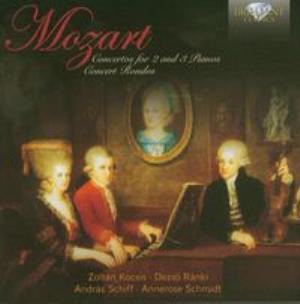- Regulamin
- Koszty dostawy
- Kontakt
- Dziś w ofercie 233 997 produktów
KSIĄŻKI
- Albumy
- Beletrystyka
- Biografie
- Dla dzieci i młodzieży
- Edukacja
- Ekonomia i biznes
- Ezoteryka
- Historia
- Informatyka
- Kalendarze
- Komiksy
- Kryminał i sensacja
- Kultura i sztuka
- Literatura faktu
- Literatura kobieca
- Literatura piękna
- Medycyna
- Nauka języków obcych
- Nauki humanistyczne
- Nauki przyrodnicze
- Nauki ścisłe
- Podręczniki
- Poradniki
- Prawo i administracja
- Przewodniki i podróże
- Psychologia
- Religia
- Sport
- Technika
- Zdrowie i uroda
ZABAWKI
- Artykuły dla niemowląt
- Bączki
- Bujaki i skoczki
- Ciągnij / pchaj
- Dla niemowlaka
- Grzechotki i gryzaki
- Karuzele i pozytywki
- Maty i centra zabaw
- Projektory i lampki
- Sortery i piramidki
- Zabawki
- Edukacyjne i kreatywne
- Figurki
- Klocki
- Lalki
- Pojazdy
- Pluszaki i maskotki
- Sport i rekreacja
- Zabawa w dom
- Zabawki drewniane
- Puzzle
- Do 200 elementów
- 201-500 elementów
- 501-1000 elementów
- Ponad 1000 elementów
- Puzzle 3D
ART. PAP
- Artykuły biurowe
- Artykuły piśmiennicze
- Bloczki i kartki samoprzylepne
- Dziurkacze
- Kalkulatory
- Nożyczki i nożyki
- Skoroszyty
- Teczki
- Wizytowniki
- Zszywacze
- Artykuły szkolne
- Akcesoria szkolne
- Modelowanie
- Notatniki i zeszyty
- Piórniki
- Plecaki i torby
- Pojemniki na śniadanie
- Pomoce naukowe
- Przybory matematyczne
- Przybory rysunkowe
- Upominki i gadżety
- Akcesoria do książek
- Artykuły balowe
- Breloki i zawieszki
- Drobiazgi, różności
- Kubki
- Oferta Świąteczna
- Papeteria, kartki i naklejki
- Skarpetki Many Mornings
- Upominki
GRY
MULTIMEDIA
- Audiobooki
- Beletrystyka
- Biografie i wspomnienia
- Dla dzieci i młodzieży
- Fantastyka
- Filozofia i religia
- Historia
- Literatura faktu i reportaż
- Poradniki
- Sensacja i kryminał
- Filmy DVD/BD
- Animowane
- Biograficzne
- Fantasy
- Horrory
- Komedie
- Romanse
- Science Fiction
- Sensacyjne / kino akcji
- Thrillery
- Muzyka CD
- Alternatywna
- Blues
- Dla dzieci
- Jazz
- Klasyczna
- Piosenka aktorska i poetycka
- Pop
- Rock
- Świąteczna i kolędy
- Akcesoria GSM
- Głośniki
- Kable i adaptery
- Klawiatury
- Myszy
- Słuchawki
PROMOCJE
ZDROWIE
LEGO

Mozart: Concertos for 2 & 3 Pianos, Concert Rondos
Wydawca:
Brilliant Classics
ISBN:
5028421944999
EAN:
5028421944999
oprawa:
Plastikowa
format:
14.0x12.0cm
język:
angielski
rok wydania:
2013
(0) Sprawdź recenzje
Opis produktu
Zasady bezpieczeństwa
Wolfgang Amadeus Mozart is considered one of the greatest composers of all time. In his relatively short life he contributed to every style of composition, and is as well known for his instrumental music as for his sacred works and operas. Credited with the invention of the piano concerto, his distinctive style and developments in orchestration brought new sophistication to the music of the Classical period.
During the 1770s Mozart was an employee of the Archbishop Hieronymous Colloredo in Salzburg, and it is from this period that the Concerto for 3 Pianos and Orchestra in F K242 dates. The work was written with the Archbishop's nieces in mind, although it was later revised for Mozart and his sister to play, and its cheeky interplay between the soloists and various passages of fast finger work are typical of Mozart's style. The Concerto for 2 Pianos and Orchestra K365 that follows contains a plethora of ideas that the composer weaves into a whole; the ensuing Rondo for Piano and Orchestra in D K382, meanwhile, was hugely popular among the Viennese audience at the time of its composition, and has remained so today -- thanks to its imaginative scoring and memorable melodies. Last, not by no means least, the Rondo for Piano and Orchestra in A: thought to have been the original finale to the Piano Concerto in A, this work was not published in Mozart's lifetime. Gradually pieced together from manuscript sold on by his wife after his death, it was finally issued in 1963.
The disc features four outstanding pianists: Hungarian pianist and conductor Zoltán Kocsis, fellow countryman Dezsö Ranki, British-Hungarian András Schiff and German-born Annerose Schmidt. They are joined by the Hungarian State Orchestra (conducted by János Ferencsik) and the Dresdner Philharmonie (conducted by Kurt Masur).
Other information:
- After more than 30 years still fresh, brilliant and invigorating, some would say still unrivalled: the recording of Mozart's concertos for 2 and 3 pianos by the three (then) Hungarian wonderboys Zoltán Kocsis, Dezsö Ránki and András Schiff, accompanied by the Hungarian State Orchestra directed by maestro János Ferencsik
- Contains notes on the music and biographies of each pianist and orchestra.
CENA:
21,12
zł
Cena detaliczna:
24,90 zł
15%
rabatu
Najniższa cena z ostatnich 30 dni: 21,12 zł
Produkt niedostępny
Uwaga!!!
Ten produkt jest zapowiedzią. Realizacja Twojego zamówienia ulegnie przez to wydłużeniu do czasu premiery tej pozycji. Czy chcesz dodać ten produkt do koszyka?


Wybierz wariant produktu
